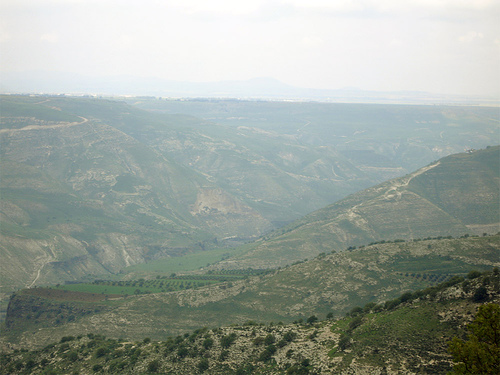|
Ibn Muljim
Abd al-Rahman ibn Amr ibn Muljam al-Muradi (), commonly known simply as Ibn Muljam, was a Kharijite dissident known primarily for assassinating, ‘Alī ibn Abi Talib, the fourth caliph of the Rashidun Caliphate and the first Imam of the Shia Imamate. After the death of Ali ibn Abi Talib his first son Hasan Ibn Ali caught Ibn Muljam and executed him in Kufa, the same location where Ali-Ibn Talib was assassinated. Assassination plot There were numerous defections from Ali's camp in the aftermath of the Battle of Siffin. A majority of these defectors gathered under one banner and came to be known as the Kharijites. A number of them met in Mecca and discussed the 659 Battle of Nahrawan, which took place as a consequence of Siffin, wherein most of their men were eradicated while facing Ali's army. They concocted a plot to assassinate three prominent Muslim personalities: Amr ibn Bakr al-Tamimi was to kill Amr ibn al-As, al-Hujjaj al-Tamimi was to kill Mu'awiya ibn Abu Sufyan ... [...More Info...] [...Related Items...] OR: [Wikipedia] [Google] [Baidu] |
Murad (tribe)
The Murad () are an Arab tribe of eastern Yemen. The Murad belong to the southern group of the Madhhij. They are described as retaining a typically Beduin character and their territory, called Bilad Murad, lies in the governorate of Marib Marib (; Ancient South Arabian script, Old South Arabian: 𐩣𐩧𐩨/𐩣𐩧𐩺𐩨 ''Mryb/Mrb'') is the capital city of Marib Governorate, Yemen. It was the capital of the ancient kingdom of ''Saba’, Sabaʾ'' (), which some scholars beli ... and parts of al-Baydha and Dhamar Governorates in northern Yemen. References Ethnic groups in Yemen Tribes of Arabia Yemeni tribes Bedouin groups {{Yemen-stub ... [...More Info...] [...Related Items...] OR: [Wikipedia] [Google] [Baidu] |
Amr Ibn Al-As
Amr ibn al-As ibn Wa'il al-Sahmi (664) was an Arab commander and companion of Muhammad who led the Muslim conquest of Egypt and served as its governor in 640–646 and 658–664. The son of a wealthy Qurayshite, Amr embraced Islam in and was assigned important roles in the nascent Muslim community by the Islamic prophet Muhammad. The first caliph Abu Bakr () appointed Amr as a commander of the conquest of Syria. He conquered most of Palestine, to which he was appointed governor, and helped lead the Arabs to decisive victories over the Byzantines at the battles of Ajnadayn and the Yarmuk in 634 and 636. Amr launched the conquest of Egypt on his own initiative in late 639, defeating the Byzantines in a string of victories ending with the surrender of Alexandria in 641 or 642. It was the swiftest of the early Muslim conquests. This was followed by westward advances by Amr as far as Tripoli in present-day Libya. In a treaty signed with the Byzantine governor Cyrus, Amr guar ... [...More Info...] [...Related Items...] OR: [Wikipedia] [Google] [Baidu] |
7th-century Executions
The 7th century is the period from 601 through 700 in accordance with the Julian calendar in the Christian Era. The spread of Islam and the Muslim conquests began with the unification of Arabia by the Islamic prophet Muhammad starting in 622. After Muhammad's death in 632, Islam expanded beyond the Arabian Peninsula under the Rashidun Caliphate (632–661) and the Umayyad Caliphate (661–750). The Muslim conquest of Persia in the 7th century led to the downfall of the Sasanian Empire. Also conquered during the 7th century were Syria, Palestine, Armenia, Egypt, and North Africa. The Byzantine Empire suffered setbacks during the rapid expansion of the Caliphate and a mass incursion of Slavs in the Balkans which reduced its territorial limits. The decisive victory at the Siege of Constantinople in the 670s led the empire to retain Asia Minor, which ensured the existence of the empire. In the Iberian Peninsula, the 7th century was known as the ''Siglo de Concilios'' (centur ... [...More Info...] [...Related Items...] OR: [Wikipedia] [Google] [Baidu] |
7th-century Arab People
The 7th century is the period from 601 through 700 in accordance with the Julian calendar in the Christian Era. The spread of Islam and the Muslim conquests began with the unification of Arabia by the Islamic prophet Muhammad starting in 622. After Muhammad's death in 632, Islam expanded beyond the Arabian Peninsula under the Rashidun Caliphate (632–661) and the Umayyad Caliphate (661–750). The Muslim conquest of Persia in the 7th century led to the downfall of the Sasanian Empire. Also conquered during the 7th century were Syria, Palestine, Armenia, Egypt, and North Africa. The Byzantine Empire suffered setbacks during the rapid expansion of the Caliphate and a mass incursion of Slavs in the Balkans which reduced its territorial limits. The decisive victory at the Siege of Constantinople in the 670s led the empire to retain Asia Minor, which ensured the existence of the empire. In the Iberian Peninsula, the 7th century was known as the ''Siglo de Concilios'' (century ... [...More Info...] [...Related Items...] OR: [Wikipedia] [Google] [Baidu] |
7th-century Criminals
The 7th century is the period from 601 through 700 in accordance with the Julian calendar in the Christian Era. The spread of Islam and the Muslim conquests began with the unification of Arabia by the Islamic prophet Muhammad starting in 622. After Muhammad's death in 632, Islam expanded beyond the Arabian Peninsula under the Rashidun Caliphate (632–661) and the Umayyad Caliphate (661–750). The Muslim conquest of Persia in the 7th century led to the downfall of the Sasanian Empire. Also conquered during the 7th century were Syria, Palestine, Armenia, Egypt, and North Africa. The Byzantine Empire suffered setbacks during the rapid expansion of the Caliphate and a mass incursion of Slavs in the Balkans which reduced its territorial limits. The decisive victory at the Siege of Constantinople in the 670s led the empire to retain Asia Minor, which ensured the existence of the empire. In the Iberian Peninsula, the 7th century was known as the ''Siglo de Concilios'' (century o ... [...More Info...] [...Related Items...] OR: [Wikipedia] [Google] [Baidu] |



